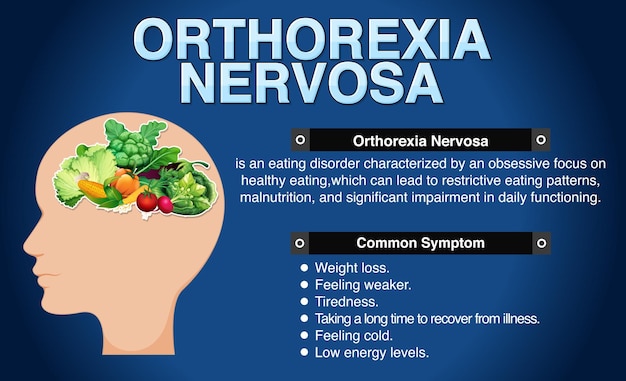

The nervous system is a complex network of cells and tissues that enable communication between different parts of the body.
The nervous system controls everything from breathing and digestion to how we move and think.
The largest part of the human brain is called the cerebrum, which is responsible for storing memories and processing information.
Did you know that the nervous system is made up of billions of specialized cells called neurons?
Neurons can transmit information at speeds of up to 268 miles per hour!
The spinal cord is a key part of the nervous system as it connects the brain to the rest of the body.
Reflexes are automatic responses controlled by the nervous system, such as pulling your hand away from a hot stove.
The average human brain weighs about three pounds, but it’s responsible for controlling every movement and thought we have.
The human brain has about 100 billion neurons, which could stretch over 600 miles if laid end to end.
The nervous system allows us to experience emotions such as joy, sadness, fear, and excitement.
Did you know that you can enhance your nervous system’s functioning through activities like puzzles, brain-training, and meditation?
The brain releases chemicals called neurotransmitters to pass messages between neurons.
The human brain generates about 20 watts of electrical power when active.
The feeling of butterflies in the stomach is caused by the nervous system’s response to stress or excitement.
The speed at which a nerve impulse travels can vary depending on factors like temperature and myelination.
Newborn babies have almost all the nerve cells they will ever have, but the connections between them continue to develop throughout childhood.
The neurons in your brain can form complex networks, allowing you to learn and acquire new skills.
The nervous system controls the body’s biological clock, regulating sleep and wakefulness.
Human brains are not symmetrical – the left and right hemispheres have slightly different functions.
The nervous system plays a crucial role in the sense of touch, allowing us to feel textures, temperatures, and pain.
The speed of nerve impulses is approximately 250 miles per hour.
The nervous system is divided into two main parts: the central nervous system (CNS) and the peripheral nervous system (PNS).
The CNS includes the brain and spinal cord, while the PNS consists of nerves that extend throughout the body.
The nervous system helps to maintain homeostasis in the body, regulating temperature, blood pressure, and other vital functions.
Despite being only 2% of our body weight, the brain consumes about 20% of the body’s energy.
The nervous system allows us to experience and interpret the world through our five senses: sight, hearing, taste, touch, and smell.
The myelin sheath, a fatty substance, insulates and speeds up the transmission of nerve impulses.
Stimulants like caffeine can affect the nervous system by increasing alertness and concentration.
The brain continues to develop and change throughout our lives, making new connections and strengthening existing ones.
The nervous system is incredibly adaptable, allowing us to learn new skills and adapt to our ever-changing environment.
Neuroplasticity refers to the brain’s ability to reorganize and form new connections in response to experiences and learning.
The nervous system plays a role in regulating emotions, ensuring a balance between joy, fear, anger, and other feelings.
Learning a new language or musical instrument can stimulate the nervous system and improve cognitive function.
The nervous system helps to coordinate complex movements like dancing, playing sports, or playing musical instruments.
The brain’s reward system releases feel-good chemicals like dopamine when we experience pleasure or success.
The sympathetic nervous system prepares our bodies for fight or flight responses in dangerous situations.
Chronic stress can negatively affect the nervous system, leading to issues like anxiety, depression, and decreased immune function.
The enteric nervous system, often referred to as the second brain, controls the digestive system.
The nervous system allows us to recognize and remember familiar faces, voices, and places.
Dreams occur during REM (rapid eye movement) sleep, a stage when the brain is highly active and the body is paralyzed.
The nervous system helps to coordinate the release of hormones, regulating processes like growth, metabolism, and reproduction.
Meditation and deep breathing exercises can calm the nervous system and reduce stress levels.
The fight-or-flight response triggers the release of adrenaline, preparing the body for intense physical activity.
The spinal cord can process simple reflexes without the need for input from the brain, allowing for rapid reactions to stimuli.
The nervous system is an incredible network that enables us to experience and navigate the world around us, constantly adapting and evolving.
Around the world, coffee enthusiasts enjoy Monin coffee concentrate since it is a multipurpose product. Conveniently combining…
The Importance of Choosing the Right Shower for Your Bathroom Renovating your bathroom can be…
Usain Bolt holds the record for the fastest 100-meter sprint in history.Bolt was named Sportsman…
Love is in the air... and it smells suspiciously like chocolate!Roses are red, violets are…
Life's a beach, take a picture and relax.Sun, sand, and salty kisses. That's what beach…
Hungary is home to the largest thermal water cave system in the world.The Rubik's Cube…